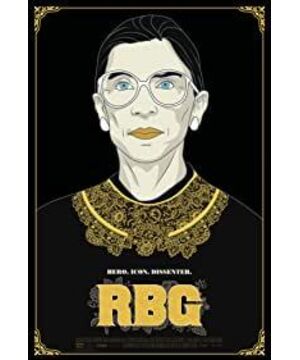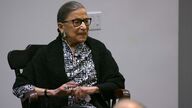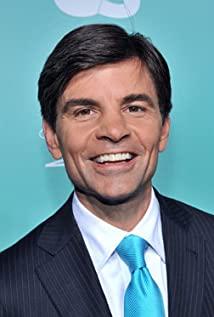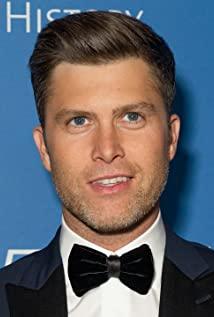I don't ask women for any extra benefit, all I ask is for men to get their feet off our necks.
1.
"This person is a witch, a villain, a witch," said Michael Savage.
"There's no question she's evil incarnate." Scott Lively was equally resentful.
"She is a disgrace in the Supreme Court..." The current US President Trump criticized her mercilessly.
Who has the ability to become such a ruthless character that a group of powerful people can't handle but can't get rid of?
What kind of fairy can make Trump jump like this (although he often jumps).
She is the "notorious" female justice, Ruth Bader Ginsburg.
In fact, Ginsburg shines brightly in the hearts of most Americans.
"She was a great warrior to change the situation for American women."
"She is the one and only queen!"
"Fight for equality and equality for the rest of my life!"
"She is the person most qualified to be called a superhero!"
People are crazy about it, buying T-shirts, mugs, stickers and other accessories with her face on them like crazy, imitating her wearing all kinds of fashion neck accessories.
She even got her face tattooed on her body.
How could such a small old lady with a restrained and gentle personality become an all-powerful "Internet celebrity", making countless young people in the United States call her?
Come, let's experience how Ginsburg wrote a career in law in an era when women can be described as "second-class citizens", gender discrimination is ubiquitous, and the legal field is dominated by men.
2.
"Women should have other parts to contribute to civilization than the vagina," Christopher Buckley pointed out in "Arabian Florence."
At present, more and more women are awakening and want to realize their dream goals and life values.
Women's liberation still has a long way to go.
Every year, 2 million women around the world still disappear because of sexism.
Even in rich countries, gender discrimination is closely related to discrimination in hiring, wage inequality, and workplace sexual harassment.
Nonetheless, the "liberation" of women today is the rare result of many great pioneers and fighters, who have broken through the solidified barriers of interests and opened up operations to deep-rooted cancers through the sacrifice of tears and sweat.
Justice Ruth Bader Ginsburg was one of the pioneers.
Ginsburg, female, German-Jewish, current U.S. Supreme Court Justice.
Let's take a look at her awesome resume.
In 1970, he co-founded the Feminist Law Journal, the first specialized legal journal on women's rights in the United States.
In 1972, she became the first woman to receive tenure at Columbia Law School. In the same year, she became the first director of the ACLU Women's Rights Program.
In 1981, nominated to the District of Columbia Circuit Court of Appeals.
In 1993, she became the second woman in U.S. history and the first Jewish female Supreme Court justice.
3.
There are no shortcuts to all success.
Ginsburg was born into a difficult family in Brooklyn. His father was a first-generation immigrant in the United States and his mother was barely a second-generation immigrant.
Ginsburg admired his parents very much.
" My parents didn't get a college education, but they taught me to love learning, they taught me to care about others, and they taught me to work hard for my ideals," she said.
Ginsburg had a deep bond with her mother, and despite her illness, she gritted her teeth and worked hard to nurture her until she graduated from high school.
On graduation day, Ginsburg could not attend.
Because she was going to attend her mother's funeral.
She will always remember her mother's teachings: be a lady and stay independent.
That is, don’t let negative emotions such as unnecessary anger occupy your mind; if you can meet Prince Charming and spend the rest of your life together, it’s great, but you must learn to live independently.
According to the memories of Ginsburg's alumni, she has always been low-key and introverted, beautiful and intelligent, calm and composed, never showing any exaggerated emotions, and her homework is very good.
Even more exaggerated, never participate in gossip.
She was admitted to Cornell University and Harvard University with outstanding grades.
At the time, there were more men than women in the law department at Cornell University.
"A girl who can't find Prince Charming at Cornell has absolutely no hope elsewhere," Ginsburg said with a smile.
Harvard's law department is even more exaggerated, with only 9 girls out of 500 students.
In such a campus where there are more men than women, women are not given preferential treatment, and are even deeply discriminated against everywhere.
She wanted to go to the library, but was stopped by the security guard. There was no reason, just because she was a girl, so, NO!
What about Columbia University's No. 1 grade?
What about recognized excellence?
After graduation, the dean of Harvard Law School strongly recommended her to the then justice for a legal trainee position. However, when she heard "She", she immediately refused, "Are you funny? We can't hire a woman as a lawyer. ."
Throughout the 1960s, Ginsburg could only go the educational route, teaching law in college and co-founding Feminist Legal Report.
In the education industry, she did not slack off. In 1980, she won a tenured teaching position at Columbia University, becoming the first woman in the history of the school to receive this honor.
Beginning in 1972, Ginsburg officially entered the fight for women's rights.
As a human rights lawyer, I do legal work for the liberation of women's rights.
All of this requires N times more hardships than men.
As a student, Ginsburg was an out-and-out scholar.
By the time she entered Harvard, she was the mother of a 1-year-old girl.
She is a mother and a mother. She saves the day-time nanny fee from her living expenses, and rushes home at four o'clock every day after class to take care of her daughter.
However, more difficult things followed when her husband, Martin, was diagnosed with testicular cancer.
In addition to being sad, Ginsburg responded calmly.
While taking care of her husband, she printed out the class notes of the class during the day to explain it to her husband, while reading the cases and materials of the next day's class, she also helped her husband complete his homework and arranged for his friends to help him catch up with the study progress.
By the way, I also have to take care of a 2-year-old child.
At that time, she only slept two and a half hours a day.
Beyond ordinary people's imagination.
It is such a high-intensity study career that has cultivated her "iron man" character.
After entering the workplace, she is a complete workaholic.
She is always working non-stop, forgetting to eat and sleep again and again.
According to her children's memories, every time she woke up in the middle of the night, she would always find her mother still laying her head at her desk under the warm yellow light.
The best part is that I can arrive at the court on time at 9 o'clock every time.
4.
In these frantic days of work, several landmark cases of sexism have made Ginsburg stand out in the legal profession.
Case 1: In 1973, the female air force allowance case.
An Air Force second lieutenant named Sarang discovered during her service that her male colleagues received housing allowances that she did not, because of gender.
She went to the financial room to make a theory, and was told: As a person who squatted to pee, you have been fortunate for three lifetimes to get the opportunity to join the army!
Ginsburg defended it with a mild but powerful statement, objectively stating the status quo of women's "second-class citizenship" status, which cannot be guaranteed by law.
She asked the justice: Imagine if your daughter and granddaughter were treated like this, how would you feel?
Is the so-called equality in the United States reflected in this way?
Won.
Case 2: In 1975, the widower's security case.
Stephen, who died of an amniotic fluid embolism when his wife gave birth, became a widow.
In order to give the best care and education to his infant son, he decided to take care of the child full-time. So I went to apply for the Single Parent Benefit and was told: "This is for single mothers, you are not eligible for it."
Men also suffer from gender discrimination.
In order to show the indiscriminate attitude of "not seeking women's privilege" and "only seeking equality" against gender discrimination, Ginsburg took the initiative to take over the case.
Won.
Case 3: In 1996, the Virginia Military Institute refused to admit women.
By this time, Ginsburg was a justice.
She pointed out that the college's practice of admitting only male students violated the equal protection clause of the 14th Amendment to the U.S. Constitution.
In the end, six justices upheld the decision that the school must admit girls, and appointed Ginsburg to write the court opinion.
Case Four: The Lily Ledbetter Salary Case, 2007
Lily Ledbetter, who worked for the Goodyear Tire Company for decades, stumbled upon her salary 40 percent less than her three male colleagues in the same position.
By law, pay discrimination claims need to be appealed within 180 days of the date the violation occurred.
The Supreme Court found Ledbetter missed the appeal date.
Because another female justice has retired, Ginsburg is the only female justice left on the Supreme Court.
She had never raised a "dissent" before.
But this time she knew she had to stand up.
She pointed out that Ledbetter did not file a lawsuit earlier because she trusted her employer, and it was difficult for her to detect the injustice in time, which should not be a reason to prevent her from seeking compensation for gender-based wage discrimination now.
Won.
Ginsburg became more and more courageous and determined, and gradually became a "notorious" "dissident" judge.
5.
Women who were "overly smart" like Ginsburg were not popular in those days.
She owes at least half of her military merit to her husband, Martin, who supports her unconditionally and appreciates her wisdom.
Martin fell in love with Ginsburg as a student.
Like because of her beautiful appearance, love because of her extraordinary intelligence.
Before Ginsburg's career took off, Martin was a very good tax lawyer.
For Ginsburg's career as a justice in Washington, he gave up his New York turf and moved to Washington with his wife. And humorously said, "Because my wife found a good job in Washington."
Martin never blocked any of Ginsburg's career and dreams.
Not only that, encouragement, companionship and silent support are everywhere.
When Ginsburg decided to run for justice, people laughed that there was no one in the world more reluctant to brag than her.
The job of the campaign was taken over by Martin.
He contacted countless people his wife had helped, analyzed all the information and possibilities, and put in an unimaginable amount of effort.
Watching the video of Ginsburg's speech when she was elected to the justice, we can always see a man behind her, Martin, who can't help smiling from time to time.
There was pride and pride in his eyes.
After becoming a justice, Martin's task was to "cheat home" Ginsburg after get off work every day.
Calling her from 7:30 until Ginsburg finally gave up at 9:00. Then, the task was to push her to bed.
In Martin's heart, the greatest achievement in his life, the happiest thing, is the achievement of his wife.
This is not so easy to understand for a man, especially a man who is more successful in his career.
"I've always supported my wife, and she's been with me. It's not sacrifice, it's what family means ," he said .
They move and remain quiet, extrovert and introvert, and spend their whole lives explaining what is "Qin Se and Ming" and what is a soul mate.
As Martin was dying, he left a letter to Ginsburg:
My dearest Ruth, you are the only person I have ever loved in my life.
From the day we met in Cornell 56 years ago, I have never stopped admiring and admiring you... I am so happy to see you step by step to the top of the legal world!
I'll be in the hospital until June 25th...
No matter what, my love for you will not diminish one bit.
6.
On the day of Martin's death, the Supreme Court was in session as usual, and Ginsburg needed to read the opinion.
The children advised her not to be absent, since she had never been absent.
"Father certainly does not want his mother to miss the last days of the trial year because of his death."
So, Ginsburg appeared on the bench as usual, very quiet.
No one knew how sad she was in her heart.
She said: "Meeting Martin and spending my life with Martin is the happiest thing in my life.
However, life has to go on, and a world that seeks justice will always need a female warrior like her.
People wonder, how long will she be in office?
'People my age can never predict the future,' she said.
But as long as I feel like I'm still glowing enough, I'll work. I think next year will be fine too. After that, who knows?
Outside of work, Ginsburg has the same iron will for life and body.
In 1999, Ginsburg was diagnosed with colon cancer. She actively received comprehensive treatment such as surgery, radiotherapy and chemotherapy, and was successfully cured.
She was diagnosed with pancreatic cancer in 2009.
This is one of the most malignant cancers, but the tumor is found early. Undeterred by the cancer, she was quickly back at work eight days post-operatively.
In December 2018, she underwent another surgery for cancer.
In August 2019, he received radiotherapy for pancreatic cancer again and was just discharged in November. This is her fourth fight against cancer.
Earlier this year, she said, "I'm cancer-free now and I feel great."
She started her fitness career in her 80s. Work out daily under the guidance of a fitness trainer in the ground floor gym of the Supreme Court. Can even do 20 push-ups at a time.
She loves life and is an avid opera fan.
When enjoying the opera, you can completely let go of the troubles of work and say goodbye to the sadness of losing Martin for a short time.
She said that the opera contains the pursuit and praise of fairness.
We see Ginsburg's boundless enthusiasm for his career at any time and at any age.
We have seen the peace and strength that Ginsburg showed in the face of all kinds of unexpected bad news in life, in the face of incomprehension and attacks from his peers, and in the face of the pain of losing Martin.
We see her great legal achievements, her admirable perfect love, and her ever-passionate, ever-boiled--
brave Heart.
View more about RBG reviews











